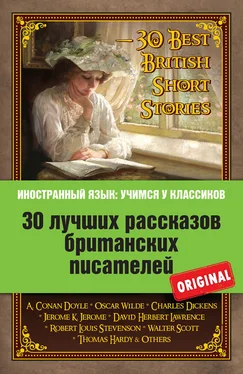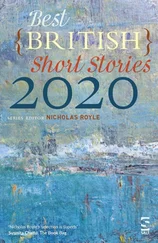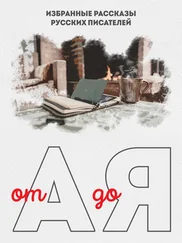‘Beat it! Beat it for God’s sake!’ called the man who had been stabbed through the wrist. His face was very white, and he was obviously about to faint.
Ben and the other man, whose name was Toller, dashed to the door. On the pavement there was a confused scramble. Blows were struck indiscriminately. Two policemen appeared. One was laid hors de combat by a kick on the knee-cap from Toller. The two men fled into the darkness, followed by a hue-and-cry. Born and bred in the locality, they took every advantage of their knowledge. They tacked through alleys and raced down dark mews, and clambered over walls. Fortunately for them, the people they passed, who might have tripped them up or aided in the pursuit, merely fled indoors. The people in Wapping are not always on the side of the pursuer. But the police held on. At last Ben and Toller slipped through the door of an empty house in Aztec Street barely ten yards ahead of their nearest pursuer. Blows rained on the door, but they slipped the bolts, and then fell panting to the floor. When Ben could speak, he said:
‘If they cop us, it means swinging.’
‘Was the nigger done in?’
‘I think so. But even if ’e wasn’t, there was that other affair the night before last. The game’s up.’
The ground-floor rooms were shuttered and bolted, but they knew that the police would probably force the front door. At the back there was no escape, only a narrow stable yard, where lanterns were already flashing. The roof only extended thirty yards either way and the police would probably take possession of it. They made a round of the house, which was sketchily furnished. There was a loaf, a small piece of mutton, and a bottle of pickles, and – the most precious possession – three bottles of whisky. Each man drank half a glass of neat whisky; then Ben said: ‘We’ll be able to keep ’em quiet for a bit, anyway,’ and he went and fetched an old twelve-bore gun and a case of cartridges. Toller was opposed to this last desperate resort, but Ben continued to murmur, ‘It means swinging, anyway.’
And thus began the notorious siege of Aztec Street. It lasted three days and four nights. You may remember that, on forcing a panel of the front door, Sub-Inspector Wraithe, of the V Division, was shot through the chest. The police then tried other methods. A hose was brought into play without effect. Two policemen were killed and four wounded. The military was requisitioned. The street was picketed. Snipers occupied windows of the houses opposite. A distinguished member of the Cabinet drove down in a motor-car, and directed operations in a top-hat. It was the introduction of poison-gas which was the ultimate cause of the downfall of the citadel. The body of Ben Orming was never found, but that of Toller was discovered near the front door with a bullet through his heart. The medical officer to the Court pronounced that the man had been dead three days, but whether killed by a chance bullet from a sniper or whether killed deliberately by his fellow-criminal was never revealed. For when the end came Orming had apparently planned a final act of venom. It was known that in the basement a considerable quantity of petrol had been stored. The contents had probably been carefully distributed over the most inflammable materials in the top rooms. The fire broke out, as one witness described it, ‘almost like an explosion.’ Orming must have perished in this. The roof blazed up, and the sparks carried across the yard and started a stack of light timber in the annexe of Messrs. Morrel’s piano-factory. The factory and two blocks of tenement buildings were burnt to the ground. The estimated cost of the destruction was one hundred and eighty thousand pounds. The casualties amounted to seven killed and fifteen wounded.
At the inquiry held under Chief Justice Pengammon various odd interesting facts were revealed. Mr. Lowes-Parlby, the brilliant young K.C., distinguished himself by his searching cross-examination of many witnesses. At one point a certain Mrs. Dawes was put in the box. ‘Now,’ said Mr. Lowes-Parlby, ‘I understand that on the evening in question, Mrs. Dawes, you, and the victims, and these other people who have been mentioned, were all seated in the public bar of the Wagtail, enjoying its no doubt excellent hospitality and indulging in a friendly discussion. Is that so?’
‘Yes, sir.’
‘Now, will you tell his lordship what you were discussing?’
‘Diseases, sir.’
‘Diseases! And did the argument become acrimonious?’
‘Pardon?’
‘Was there a serious dispute about diseases?’
‘No, sir.’
‘Well, what was the subject of the dispute?’
‘We was arguin’ as to where Wych Street was, sir.’
‘What’s that?’ said his lordship.
‘The witness states, my lord, that they were arguing as to where Wych Street was.’
‘Wych Street? Do you mean W-Y-C-H?’
‘Yes, sir.’
‘You mean the narrow old street that used to run across the site of what is now the Gaiety Theatre?’
Mr. Lowes-Parlby smiled in his most charming manner.
‘Yes, my lord, I believe the witness refers to the same street you mention, though, if I may be allowed to qualify your lordship’s description of the locality, may I suggest that it was a little further east – at the side of the old Globe Theatre, which was adjacent to St. Martin’s in the Strand? That is the street you were all arguing about, isn’t it, Mrs. Dawes?’
‘Well, sir, my aunt who died from eating tinned lobster used to work at a corset-shop. I ought to know.’
His lordship ignored the witness. He turned to the counsel rather peevishly.
‘Mr. Lowes-Parlby, when I was your age I used to pass through Wych Street every day of my life. I did so for nearly twelve years. I think it hardly necessary for you to contradict me.’
The counsel bowed. It was not his place to dispute with a chief justice, although that chief justice be a hopeless old fool; but another eminent K.C., an elderly man with a tawny beard, rose in the body of the court, and said:
‘If I may be allowed to interpose, your lordship, I also spent a great deal of my youth passing through Wych Street. I have gone into the matter, comparing past and present ordnance survey maps. If I am not mistaken, the street the witness was referring to began near the hoarding at the entrance to Kingswayand ended at the back of what is now the Aldwych Theatre.’
‘Oh, no, Mr. Backer!’ exclaimed Lowes-Parlby.
His lordship removed his glasses and snapped out:
‘The matter is entirely irrelevant to the case.’
It certainly was, but the brief passage-of-arms left an unpleasant tang of bitterness behind. It was observed that Mr. Lowes-Parlby never again quite got the prehensile grip upon his cross-examination that he had shown in his treatment of the earlier witnesses. The coloured man, Harry Jones, had died in hospital, but Mr. Booth, the proprietor of the Wagtail, Baldwin Meadows, Mr. Dawes, and the man who was stabbed in the wrist, all gave evidence of a rather nugatory character. Lowes-Parlby could do nothing with it. The findings of this Special Inquiry do not concern us. It is sufficient to say that the witnesses already mentioned all returned to Wapping. The man who had received the thrust of a hatpin through his wrist did not think it advisable to take any action against Mrs. Dawes. He was pleasantly relieved to find that he was only required as a witness of an abortive discussion.
* * *
In a few weeks’ time the great Aztec Street siege remained only a romantic memory to the majority of Londoners. To Lowes-Parlby the little dispute with Chief Justice Pengammon rankled unreasonably. It is annoying to be publicly snubbed for making a statement which you know to be absolutely true, and which you have even taken pains to verify. And Lowes-Parlby was a young man accustomed to score. He made a point of looking everything up, of being prepared for an adversary thoroughly. He liked to give the appearance of knowing everything. The brilliant career just ahead of him at times dazzled him. He was one of the darlings of the gods. Everything came to Lowes-Parlby. His father had distinguished himself at the bar before him, and had amassed a modest fortune. He was an only son. At Oxford he had carried off every possible degree. He was already being spoken of for very high political honours. But the most sparkling jewel in the crown of his successes was Lady Adela Charters, the daughter of Lord Vermeer, the Minister for Foreign Affairs. She was his fiancée, and it was considered the most brilliant match of the season. She was young and almost pretty, and Lord Vermeer was immensely wealthy and one of the most influential men in Great Britain. Such a combination was irresistible. There seemed to be nothing missing in the life of Francis Lowes-Parlby, K.C.
Читать дальше
Конец ознакомительного отрывка
Купить книгу












